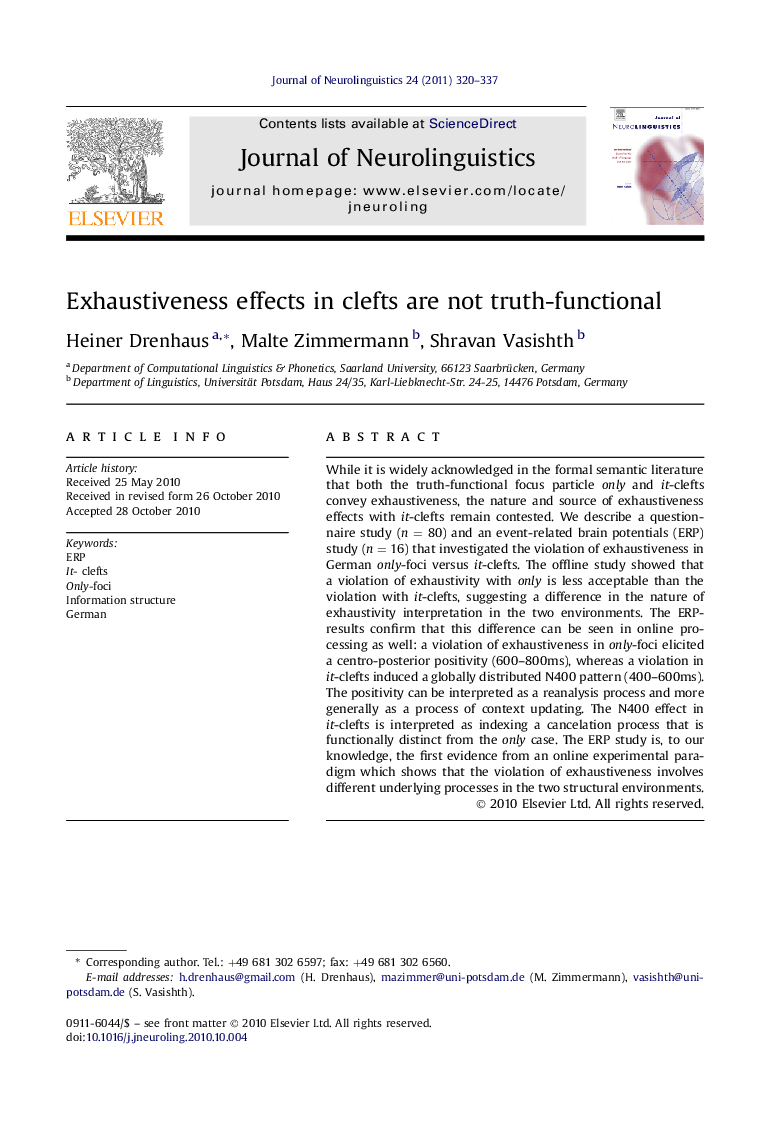| Article ID | Journal | Published Year | Pages | File Type |
|---|---|---|---|---|
| 911983 | Journal of Neurolinguistics | 2011 | 18 Pages |
While it is widely acknowledged in the formal semantic literature that both the truth-functional focus particle only and it-clefts convey exhaustiveness, the nature and source of exhaustiveness effects with it-clefts remain contested. We describe a questionnaire study (n = 80) and an event-related brain potentials (ERP) study (n = 16) that investigated the violation of exhaustiveness in German only-foci versus it-clefts. The offline study showed that a violation of exhaustivity with only is less acceptable than the violation with it-clefts, suggesting a difference in the nature of exhaustivity interpretation in the two environments. The ERP-results confirm that this difference can be seen in online processing as well: a violation of exhaustiveness in only-foci elicited a centro-posterior positivity (600–800ms), whereas a violation in it-clefts induced a globally distributed N400 pattern (400–600ms). The positivity can be interpreted as a reanalysis process and more generally as a process of context updating. The N400 effect in it-clefts is interpreted as indexing a cancelation process that is functionally distinct from the only case. The ERP study is, to our knowledge, the first evidence from an online experimental paradigm which shows that the violation of exhaustiveness involves different underlying processes in the two structural environments.
